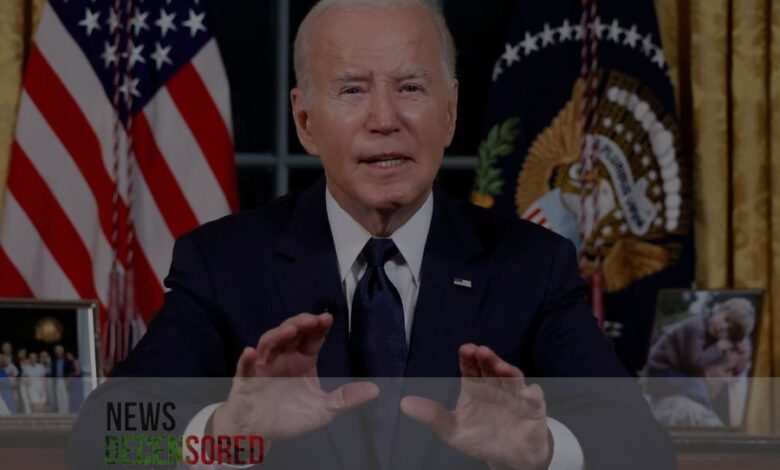Gaza-Israel War: What lies Behind the Biden Administration’sChanged Language?

A week ago, US President Joe Biden claimed that a “ceasefire” deal in Gaza was close and could take effect as soon as March 4. “My national security adviser told me we are close,” he told reporters while eating ice cream in New York City.
But ice cream or not, Biden’s original position wasn’t so sweet. A subsequent statement by a senior Biden administration official claimed that Israel had “basically accepted” the proposal for a temporary halt in fighting. But by March 4, Israeli Prime Minister Benjamin Netanyahu and his Mossad chief still refused to send a delegation to Cairo, where talks with Hamas were ongoing.
The Biden administration’s eagerness to claim victory in seeking some kind of temporary truce indicates that it is at odds with a growing global demand for an immediate ceasefire, an end to the Israeli genocide, an end to a threat. And how much the country is feeling the heat of the pressure.
Despite Washington’s vain hopes for an unofficial target for a ceasefire by the start of the Muslim holy month of Ramadan on March 10, the deal remains elusive. Media reports indicate that Biden is telling Qatari and Egyptian leaders that he is pressuring Israel to agree to a cease-fire and prisoner exchange.
But his claim to pressure Israel has been undermined by the recent U.S. veto of cease-fire resolutions at the United Nations Security
Council on February 20, as well as the continued flow of U.S. weapons and money to Israel to enable its attack.
The Arab Group’s vetoed resolution, tabled by Algeria, called for an immediate humanitarian ceasefire and condemned all attacks against civilians. It specifically rejected the “forced displacement of the Palestinian civilian population, including women and children” and unconditionally called for unimpeded humanitarian access to Gaza and the “immediate, continuous and adequate provision of humanitarian aid at scale”.
Importantly, the text cites a January ruling by the International Court of Justice (ICJ) that found Israel to have committed or prepared to commit genocide in Gaza, and it issued interim measures. Enacted a package that required Israel to curb its behavior.
Linda Thomas Greenfield, Biden’s ambassador to the United Nations, cast the sole veto against the Algerian resolution, and instead offered an alternative US text, claiming she also supported a ceasefire.
But the proposed US language does not call for an immediate or permanent ceasefire or an end to the Israeli genocide. It stops the attack on Rafah and does not end the Israeli siege. The proposed US
resolution is not designed to end Israel’s murderous war on Gaza, nor is the deal currently being negotiated in Cairo.
In contrast, the provisions of the US draft resolution reflect the Biden administration’s real ambitions for continued support for Israel, and show the limits of the ceasefire it is trying to orchestrate.
While the U.S. draft resolution uses the dreaded word “ceasefire” —something that the White House has avoided for months — it does not call for an immediate halt to the bombing. There is no indication of when this might happen. It also does not call for a permanent ceasefire, leaving Israel free to resume genocidal bombing – presumably with continued US support.
A more accurate picture of Washington’s approach to Israel’s war on Gaza is to continue the US pipeline of weapons to make Israel’s murderous assault on Gaza more effective and more lethal.
According to the Wall Street Journal, “the Biden administration is preparing to ship bombs and other weapons to Israel that would increase its military arsenal, even as the United States pushes for a cease-fire in Gaza.” Among the weapons the US wants to hand over to the Israeli military are MK-82 bombs, KMU 572 Joint Direct Attack Munitions and FMU-139 bomb fuses, worth tens of millions of dollars. The administration will do another round of the US Congress to send weapons without relying on congressional approval, as it did on at least two occasions last December.
Whatever the language of Washington’s proposed UN Security Council resolution and possibly a temporary cease-fire agreement, the words of National Security Council spokesman John Kirby continue to resonate as a better reflection of the Biden administration’s policy: “We’re going to continue to support Israel…
and we’re going to continue to make sure they have the tools and capabilities to do that.




